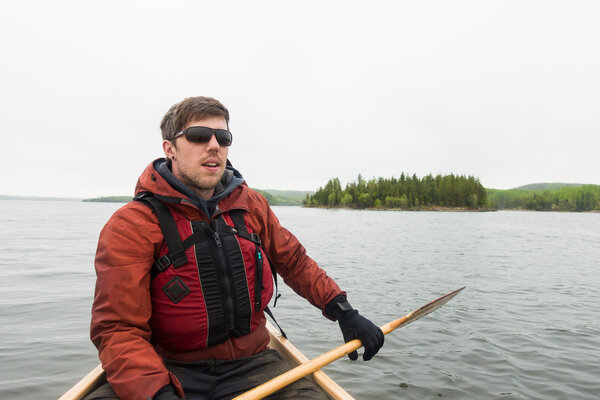A University of Saskatchewan (USask) graduate student who is originally from La Ronge has received this year’s Queen Elizabeth II Centennial Aboriginal Scholarship.
Aaron John Bell is a biology PhD student in the USask College of Arts and Science and was awarded the $20,000 scholarship from the Saskatchewan government.
“It’s for the high level of academic achievement that he has already accomplished in his career, but then also the amount of promise he shows as a future philosopher and academic,” says Dr. Iain Phillips, who supervises Bell and is an adjunct professor in the USask Department of Biology.
“His imagination and creativity are unique across the breadth of students I have trained and worked with through my career, and I expect this award will simply add fuel to his productivity and what he can accomplish through his PhD studies. We are pretty excited about it. It’s a pretty prestigious scholarship.”
Bell has received a Bachelor of Science in biology from USask and a Master of Science in conservation biology from the University of Alberta.
“He came up with the PhD project he is currently doing in the La Ronge area,” adds Phillips. “It’s really focused on fire history of the landscape and how that determines the type of biodiversity that’s retained for conservation purposes. Aaron’s research already has, and will continue to inform how the management of natural processes can be optimized for the greatest reward in biodiversity and a sustainable and productive future for Canada’s forests.”
The Queen Elizabeth II Centennial Aboriginal Scholarship is awarded each year to a First Nations or Métis student.
“This scholarship will go a long way to helping me complete my PhD program successfully,” Bell says. “I count myself lucky to be exploring the islands I grew up on as a kid. La Ronge was threatened by wildfires in 1999 and more recently in 2015 when the entire community was evacuated, so there’s definitely a history of fire here. Hopefully, our research will help guide this balancing act where we manage fire both for the good of the biosphere and the people living in it.”
(PHOTO: Aaron John Bell. Photo by Stephen Paterson.)
